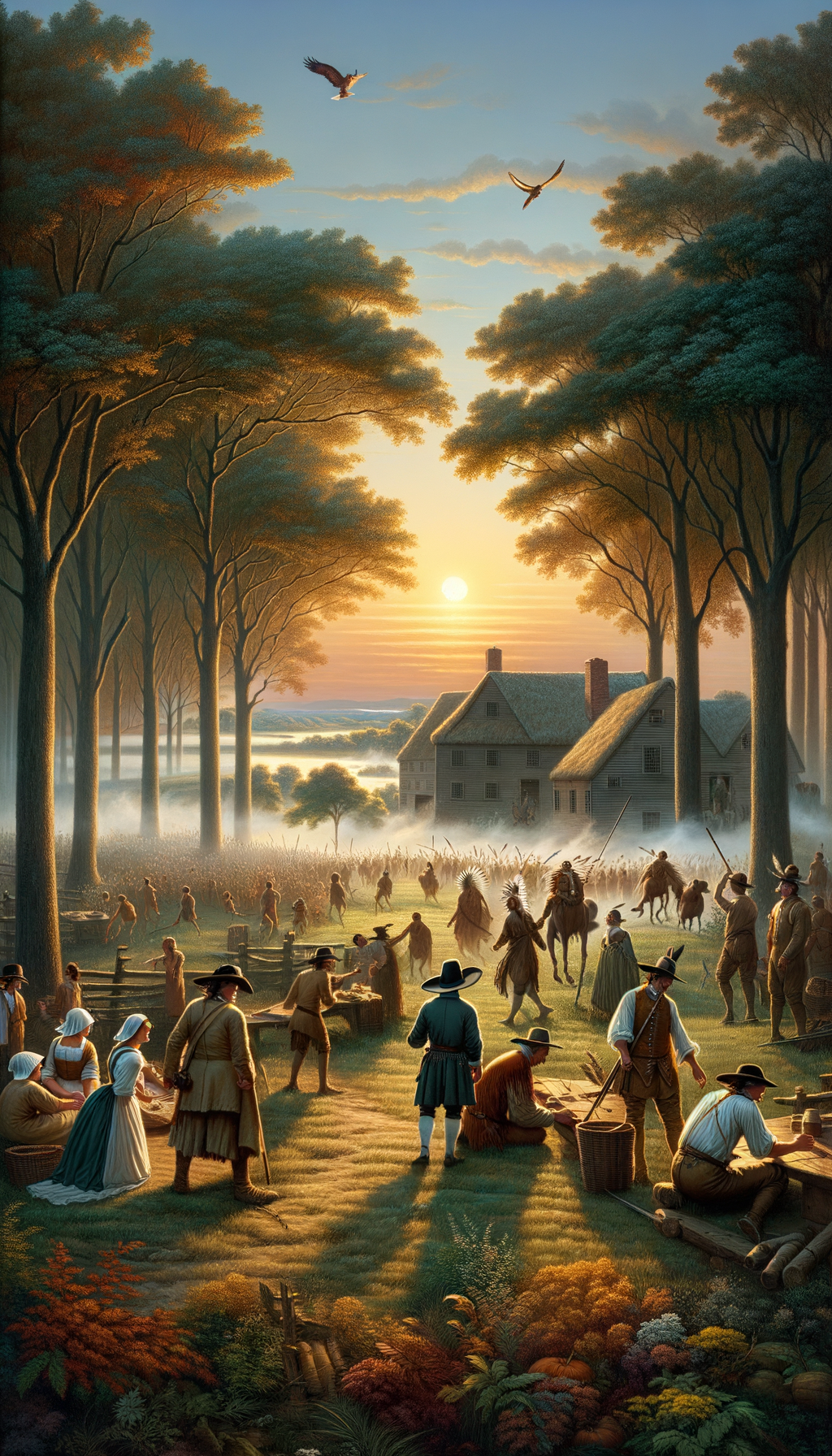United States – The Day of Reckoning: The Indian Massacre of 1622
TLDR;
- Event: On March 22, 1622, the Powhatan Confederacy, led by Chief Opechancanough, launched a surprise attack on the English settlers in Virginia, killing 347 colonists, which was about a third of the English population there.
- Cause: The attack was a response to the settlers’ encroachment on Powhatan lands and broken promises, escalating tensions between the two groups.
- Consequences: The massacre triggered the Second Anglo-Powhatan War, marking a turning point in settler-Native American relations, leading to increased conflict and a cycle of violence.
- Legacy: The event shattered hopes of peaceful coexistence, setting the stage for long-term conflict and altering the historical trajectory of the region.
–
Story
The sun rose over the Virginia Colony on March 22, 1622, casting a golden glow over the settlers’ fields and homes. Unbeknownst to them, this day would be etched in blood and fire. As the settlers went about their morning routines, the Powhatan warriors, led by Chief Opechancanough, moved silently through the forests, ready to strike.

The English settlers had long been expanding their territory, encroaching on the lands of the Powhatan Confederacy. Tensions simmered beneath the surface, fueled by broken promises and the relentless push for more land. The Powhatan, under the leadership of Opechancanough, decided it was time to push back.
The attack was swift and brutal. The Powhatan warriors descended upon the unsuspecting colonists, killing men, women, and children alike. By the end of the day, 347 settlers lay dead, about a third of the English population in Virginia. The massacre sent shockwaves through the colony, leading to a period of conflict known as the Second Anglo-Powhatan War.
This event marked a turning point in the relationship between the English settlers and the Native American tribes. It shattered any illusions of peaceful coexistence and set the stage for decades of conflict and bloodshed. The settlers, now united by fear and anger, vowed to retaliate, leading to a cycle of violence that would forever alter the landscape of the New World.
The Indian Massacre of 1622 was not just a battle for land; it was a battle for survival, identity, and control. It was a day that changed the course of history, leaving scars that would take generations to heal.
–
| Would a different approach to diplomacy have changed the course of history between the settlers and the Powhatan Confederacy? |